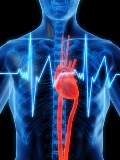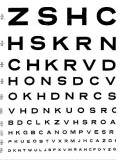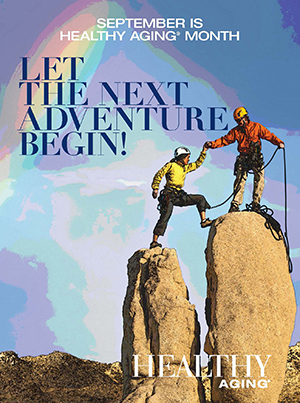 Forty-four percent of “healthy” adults with no risk factors for heart disease said that in the last five years they’d had a heart-specific screening test other than routine blood pressure monitoring and blood work, such as an electrocardiogram (EKG), a blood test for C-reactive protein (CRP), and an exercise stress test. The survey suggests considerable overuse of unneeded heart screenings. The Consumer Reports Health survey of 8,056 Consumer Reports subscribers (ages 40-60) also reveals that consumers aren’t getting crucial information about the risks and benefits of heart screenings.
Forty-four percent of “healthy” adults with no risk factors for heart disease said that in the last five years they’d had a heart-specific screening test other than routine blood pressure monitoring and blood work, such as an electrocardiogram (EKG), a blood test for C-reactive protein (CRP), and an exercise stress test. The survey suggests considerable overuse of unneeded heart screenings. The Consumer Reports Health survey of 8,056 Consumer Reports subscribers (ages 40-60) also reveals that consumers aren’t getting crucial information about the risks and benefits of heart screenings.
As a service to consumers who may be confused about the wide array of heart screenings, Consumer Reports Health is for the first time applying the familiar Ratings system to nine common heart disease screening tests (see below). The Ratings, plus a calculator that provides an estimate of an individual’s risk of having a heart attack, stroke, or other cardiovascular event in the next ten years, are available for free at .
“Something needs to be done to rein in the spending and testing spree by patients and their doctors. It’s worrisome that healthy people are getting tests they may not need because a prevention test that is not reliable can lead to a cascade of unnecessary, costly, and in some cases risky follow-up tests and treatment,” said John Santa, M.D., M.P.H., director, Consumer Reports Health Ratings Center.
“By applying a Consumer Reports‘ ratings approach to nine common screening tests, we’re making it easier for consumers to easily decipher the benefits and risks associated with these tests,” said Santa. “If we let the evidence speak for itself, then perhaps we can get a better foothold with the American consumer.”
Consumers can log on to Consumer Reports website and identify screenings that would be beneficial to them based on their age, gender, and cardiovascular health. Case in point: A 50 year-old man in good cardiovascular health would not benefit from six out of the nine screening tests evaluated by Consumer Reports Health. “All of these tests carry moderate risks to this group and therefore we would advise against them because they can do more harm than good. There are three good tests to focus on,” said Santa.
Other survey highlights:
- The overwhelming majority of survey respondents (87 percent) said they completely or somewhat agreed that “it’s better to have a scare that turns out to be nothing than to not get tested at all.” Conversely, a mere 18 percent recognized the downside of testing, saying they completely or somewhat agreed that the risk of a false positive was too great. These findings suggest that consumers may not see the harm that could come from overtesting.
- Some examples of heart screenings deemed unneeded for most healthy individuals include electrocardiograms (EKG), which were administered to 39 percent of healthy adults, the C-reactive protein (CRP) blood test (37 percent), and an exercise stress test (12 percent). Healthy adults are individuals with no history of heart disease and normal blood pressure and cholesterol levels.
- The survey indicates that respondents may be confused about their risk for heart attack or stroke. For example, 29 percent of “healthy” people in the survey described themselves as “at risk” for heart disease even though they did not have high cholesterol or blood pressure, were never diagnosed with any heart condition, never experienced symptoms of heart disease, never smoked, and rated their health as ‘good’ or ‘excellent.’ Only 9 percent had actually heard that from a doctor.
- Consumers are getting tests without first getting crucial information from a doctor or doing their own research. For example, only 11 percent of healthy adults had a conversation with their doctor about the type of follow up that would be necessary if the test detected an abnormality. A paltry 9 percent discussed the accuracy of the test and 4 percent knew about potential complications that could arise as a result of the test. Only 1 percent discussed with their doctor whether or not the medical evidence had shown that the test could save lives.
- On a positive note, 98 percent of healthy respondents had their blood pressure checked and 89 percent had their cholesterol levels screened in the last five years. Consumer Reports Health recommends blood pressure testing for all men and women whenever they visit their doctor (and at least every 2 years) and cholesterol screening for all men, regardless of risk, as well as women who are at moderate to high risk every five years. Diabetes screening is also important for men or women with prehypertension, elevated cholesterol, or obesity.
RATINGS FOR HEART SCREENING TESTS
Consumer Reports Health rated nine medical tests that screen for heart disease. Each Rating addresses the extent to which a test’s benefits outweigh the risks based on five factors including the U.S. Preventive Services Task Force recommendations, additional evidence, disease burden, value, and additional benefits.
More details about how the Ratings were derived are available free online at www.ConsumerReportsHealth.org.











